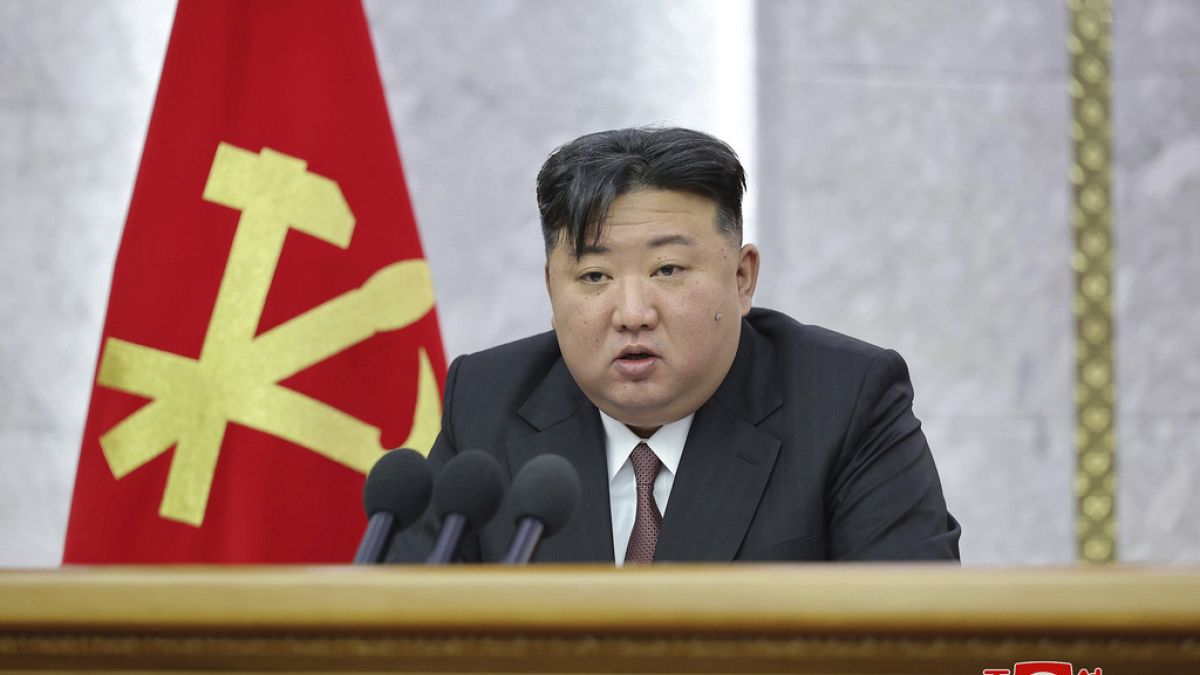North Korea commemorated the 71st anniversary of the Korean War armistice with a visit by leader Kim Jong Un to a cemetery near Pyongyang. The country’s version of history claims that the United States started the war and that North Korea emerged victorious. However, most historians agree that North Korea actually instigated the conflict, which ended with an armistice agreement signed by North Korea, the United States, and China on July 27, 1953.
During his visit, Kim Jong Un emphasized his generation’s mission to build a “paradise for the people” based on the ideology defended by the previous generation of war victors. The 40-year-old leader paid his respects at memorials dedicated to veterans of the Korean War, including the Tower of Friendship honoring Chinese People’s Liberation Army soldiers who fought alongside North Korean forces. This event was held on July 27th, although North Korean state media often report such news the day after they occur.
The Korean War, often referred to as the “Forgotten War,” lasted for three years from 1950 to 1953, resulting in the division of the Korean peninsula into North and South Korea. The armistice agreement signed in 1953 effectively ended the fighting but did not establish a formal peace treaty, leaving the Korean Peninsula in a state of unresolved conflict. The anniversary of the armistice is an important occasion in North Korea, with the regime using it as an opportunity to reinforce the historical narrative of the war.
Kim Jong Un’s visit to the cemetery and memorials underscored the regime’s commitment to promoting its version of history and glorifying the sacrifices made during the Korean War. The leader’s focus on building a “paradise for the people” reflects North Korea’s ongoing efforts to portray itself as a prosperous and powerful nation, despite facing economic challenges and international isolation. By commemorating the war and celebrating its supposed victories, North Korea seeks to rally domestic support and bolster its legitimacy as a regime.
As North Korea marks the 71st anniversary of the Korean War armistice, the event serves as a reminder of the unresolved tensions on the Korean Peninsula and the continued threat of conflict. The regime’s narrative of the war, which places North Korea as the victor and portrays the United States as the aggressor, reflects the country’s longstanding propaganda efforts to justify its actions and maintain domestic control. Despite international condemnation and sanctions, North Korea remains defiant in its pursuit of nuclear weapons and military capabilities, further complicating efforts to achieve lasting peace on the peninsula.
In conclusion, North Korea’s commemoration of the Korean War armistice highlights the regime’s ongoing efforts to promote its version of history and maintain internal cohesion. Kim Jong Un’s visit to memorials and cemeteries serves as a symbolic gesture of respect for the sacrifices made during the war and reinforces the regime’s emphasis on loyalty and patriotism. However, the anniversary also underscores the unresolved nature of the conflict on the Korean Peninsula and the challenges in achieving lasting peace and reconciliation. As the international community grapples with the complex dynamics in North Korea, the anniversary of the Korean War armistice serves as a poignant reminder of the need for continued diplomacy and engagement to address the longstanding divisions and tensions in the region.










